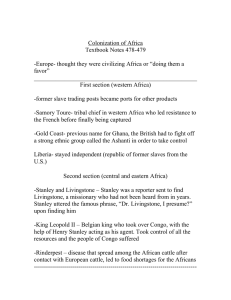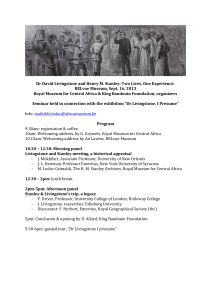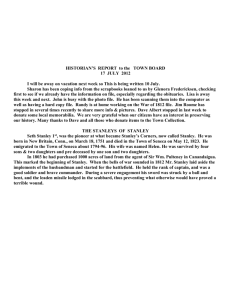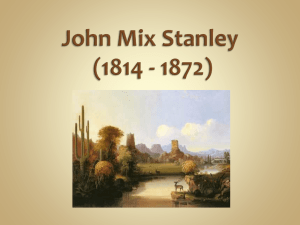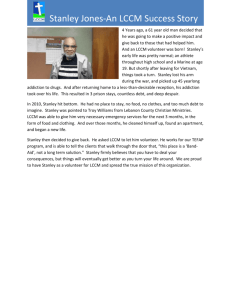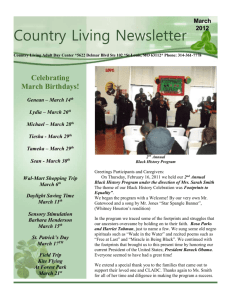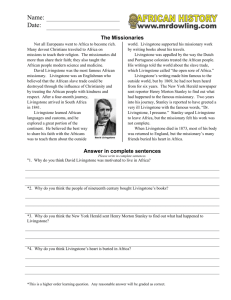H.M.Stanley
advertisement
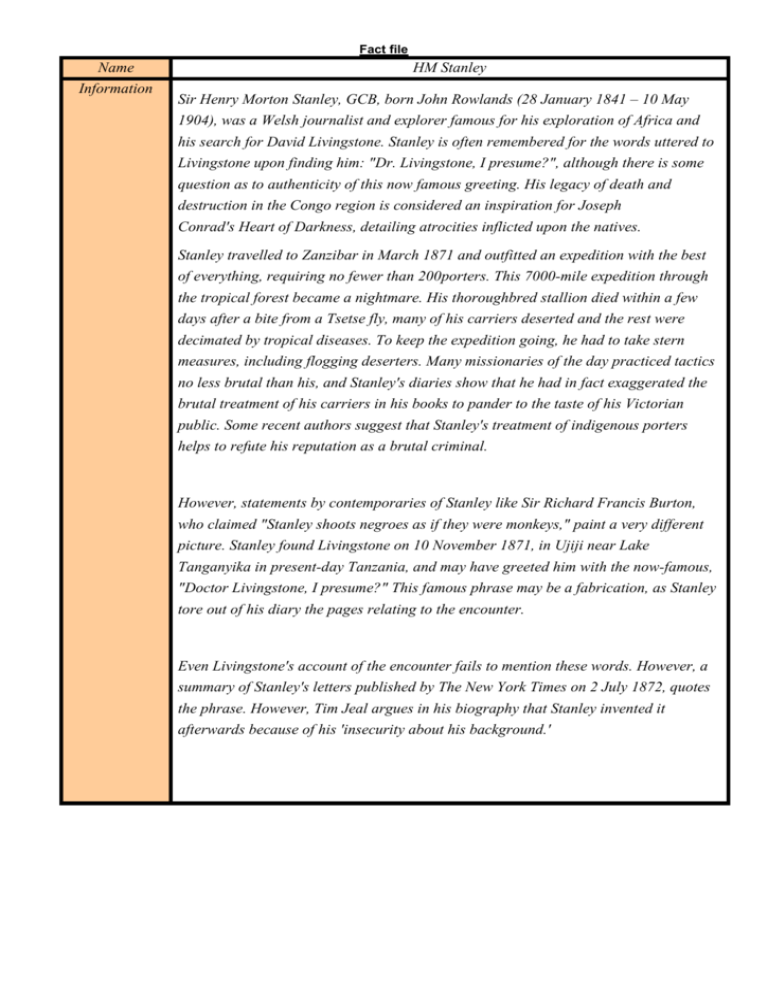
Fact file Name Information HM Stanley Sir Henry Morton Stanley, GCB, born John Rowlands (28 January 1841 – 10 May 1904), was a Welsh journalist and explorer famous for his exploration of Africa and his search for David Livingstone. Stanley is often remembered for the words uttered to Livingstone upon finding him: "Dr. Livingstone, I presume?", although there is some question as to authenticity of this now famous greeting. His legacy of death and destruction in the Congo region is considered an inspiration for Joseph Conrad's Heart of Darkness, detailing atrocities inflicted upon the natives. Stanley travelled to Zanzibar in March 1871 and outfitted an expedition with the best of everything, requiring no fewer than 200porters. This 7000-mile expedition through the tropical forest became a nightmare. His thoroughbred stallion died within a few days after a bite from a Tsetse fly, many of his carriers deserted and the rest were decimated by tropical diseases. To keep the expedition going, he had to take stern measures, including flogging deserters. Many missionaries of the day practiced tactics no less brutal than his, and Stanley's diaries show that he had in fact exaggerated the brutal treatment of his carriers in his books to pander to the taste of his Victorian public. Some recent authors suggest that Stanley's treatment of indigenous porters helps to refute his reputation as a brutal criminal. However, statements by contemporaries of Stanley like Sir Richard Francis Burton, who claimed "Stanley shoots negroes as if they were monkeys," paint a very different picture. Stanley found Livingstone on 10 November 1871, in Ujiji near Lake Tanganyika in present-day Tanzania, and may have greeted him with the now-famous, "Doctor Livingstone, I presume?" This famous phrase may be a fabrication, as Stanley tore out of his diary the pages relating to the encounter. Even Livingstone's account of the encounter fails to mention these words. However, a summary of Stanley's letters published by The New York Times on 2 July 1872, quotes the phrase. However, Tim Jeal argues in his biography that Stanley invented it afterwards because of his 'insecurity about his background.'
